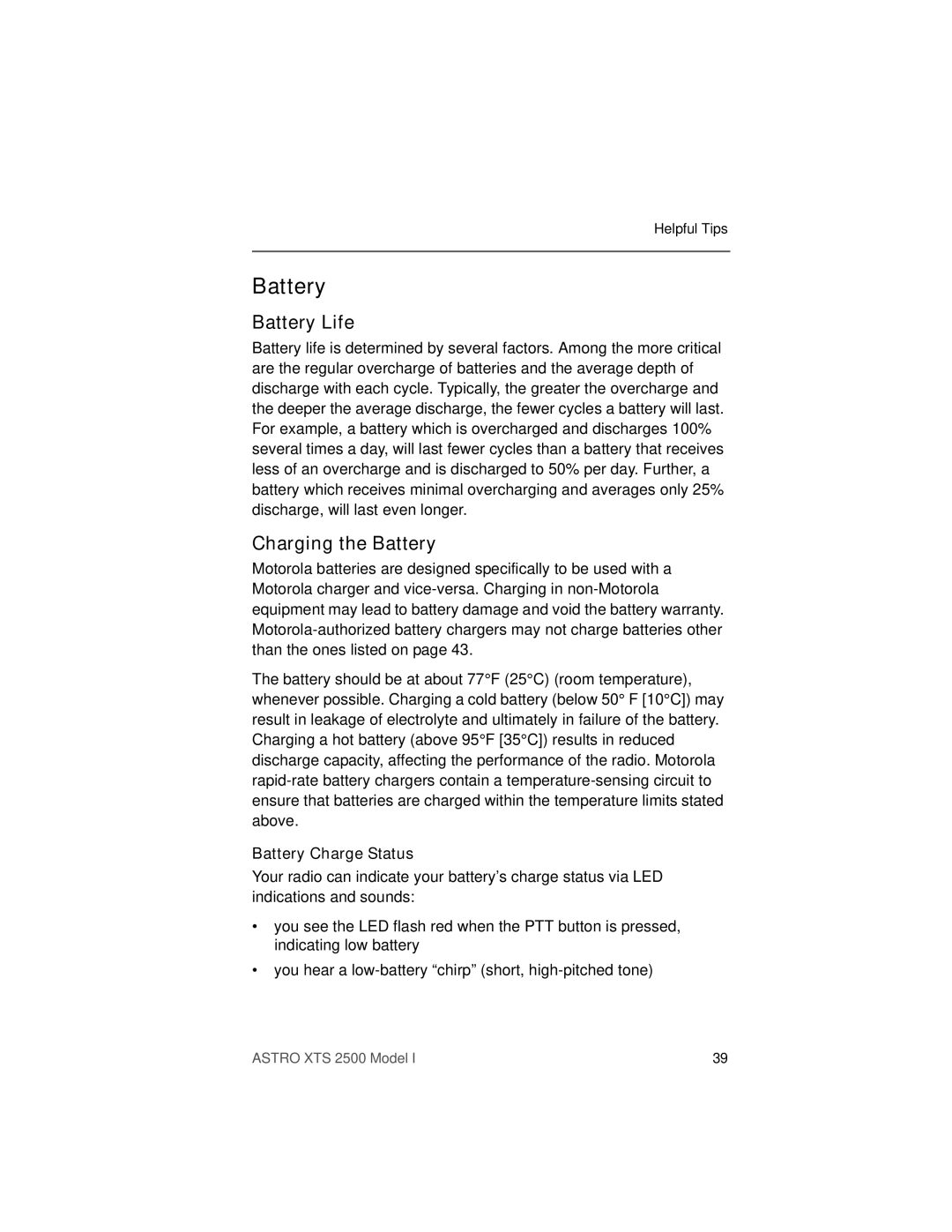Helpful Tips
Battery
Battery Life
Battery life is determined by several factors. Among the more critical are the regular overcharge of batteries and the average depth of discharge with each cycle. Typically, the greater the overcharge and the deeper the average discharge, the fewer cycles a battery will last. For example, a battery which is overcharged and discharges 100% several times a day, will last fewer cycles than a battery that receives less of an overcharge and is discharged to 50% per day. Further, a battery which receives minimal overcharging and averages only 25% discharge, will last even longer.
Charging the Battery
Motorola batteries are designed specifically to be used with a Motorola charger and
The battery should be at about 77°F (25°C) (room temperature), whenever possible. Charging a cold battery (below 50° F [10°C]) may result in leakage of electrolyte and ultimately in failure of the battery. Charging a hot battery (above 95°F [35°C]) results in reduced discharge capacity, affecting the performance of the radio. Motorola
Battery Charge Status
Your radio can indicate your battery’s charge status via LED indications and sounds:
•you see the LED flash red when the PTT button is pressed, indicating low battery
•you hear a
ASTRO XTS 2500 Model I | 39 |
